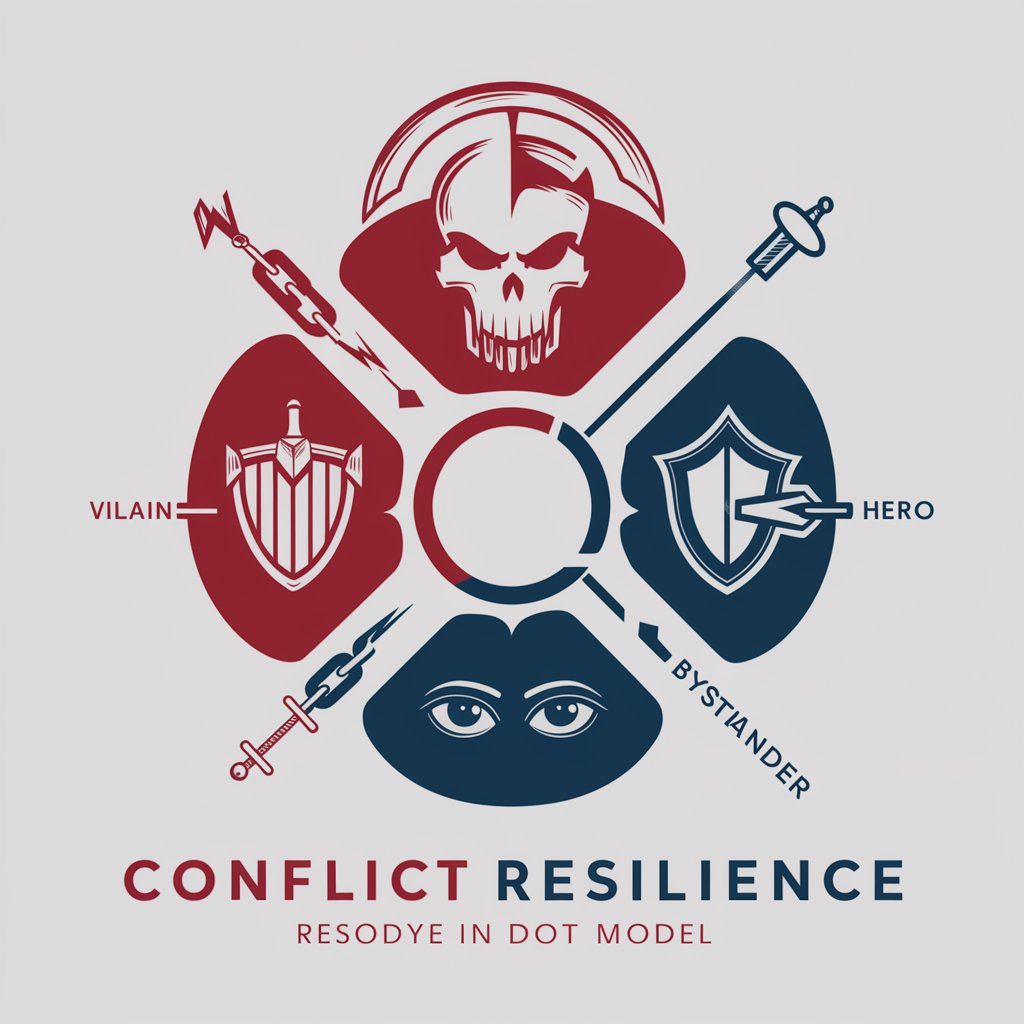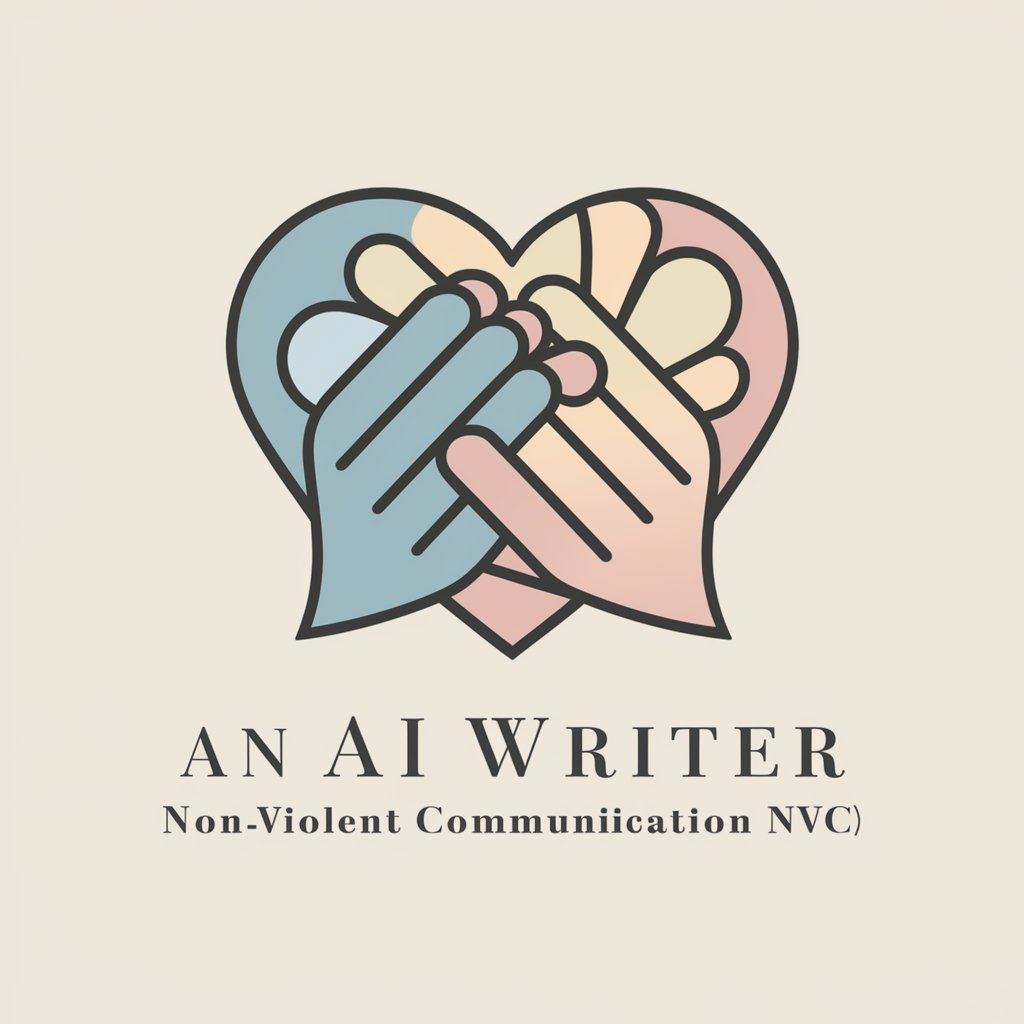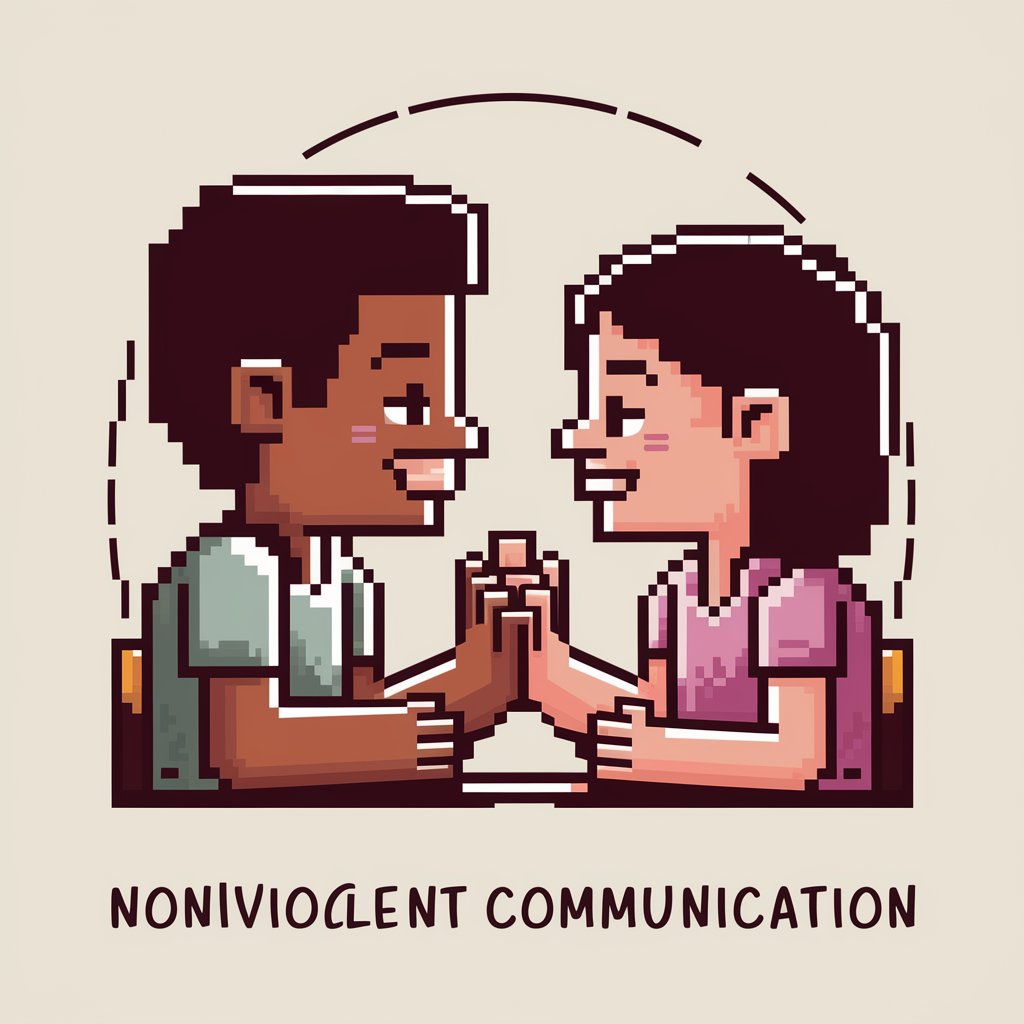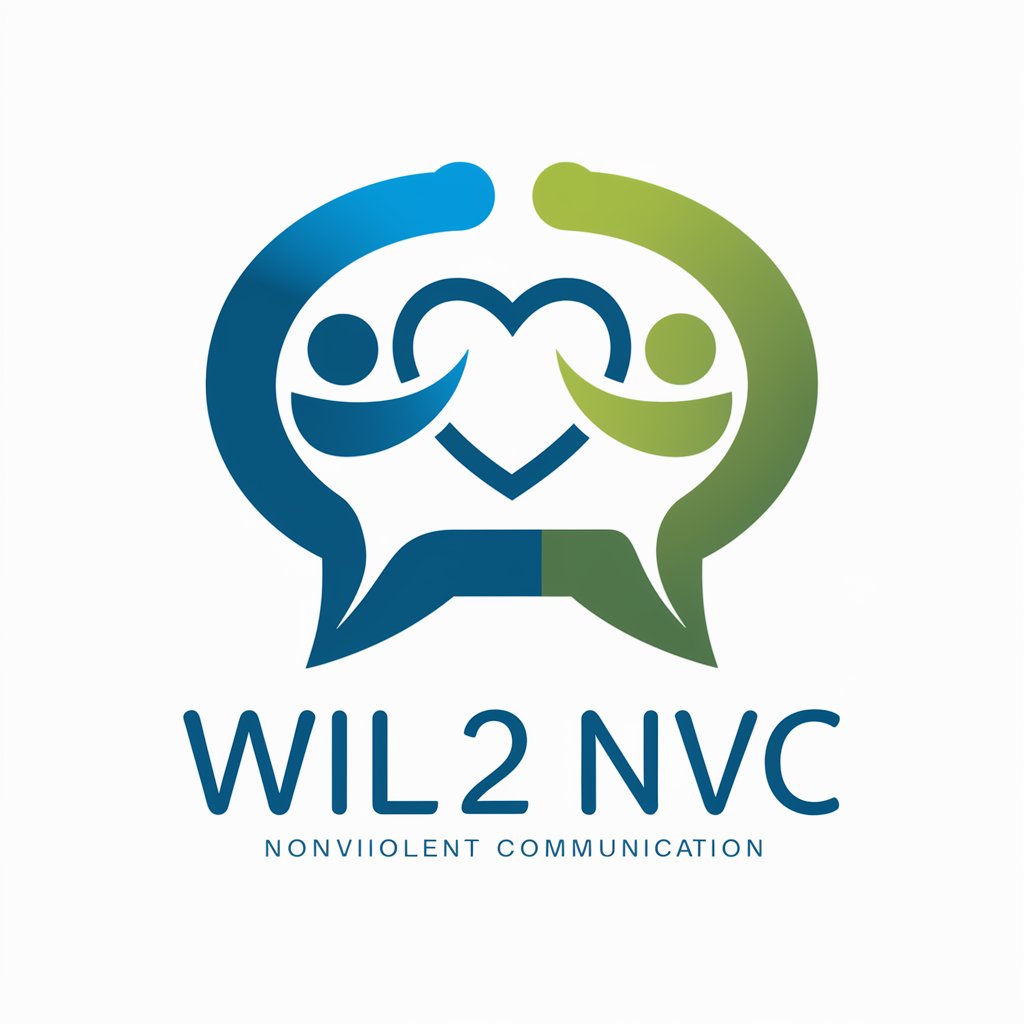
Non-violent Communication Coach - NVC Learning Tool
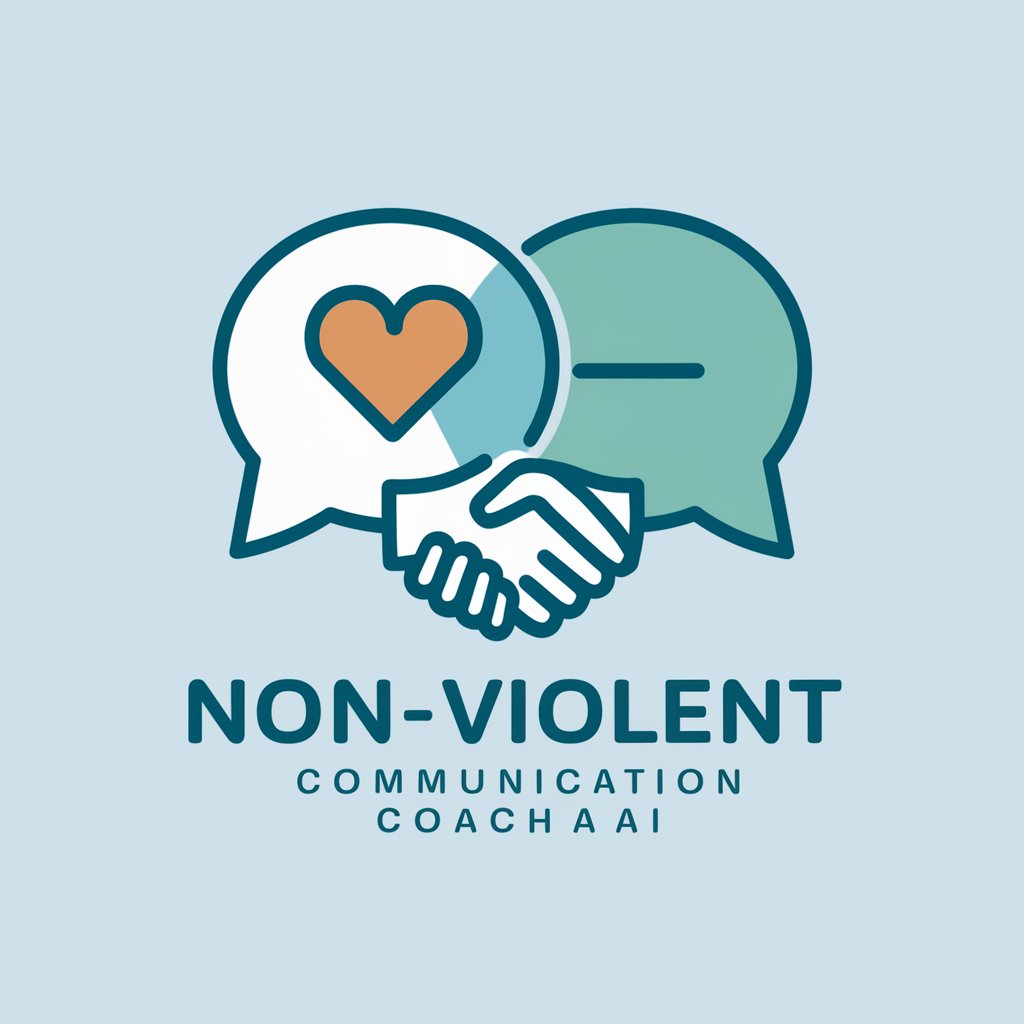
Hello! How can I assist you in improving your communication today?
Empower communication with empathy and clarity
How can I rephrase this message to be more empathetic?
What is a non-violent way to express my frustration about this issue?
Can you help me understand the feelings behind this statement?
How can I address this conflict with a focus on understanding and resolution?
Get Embed Code
Understanding the Non-violent Communication Coach
The Non-violent Communication Coach is designed to guide individuals and groups through the principles and practices of Nonviolent Communication (NVC), a method developed by Dr. Marshall B. Rosenberg. Its core purpose is to enhance interpersonal interactions and resolve conflicts by fostering empathy, understanding, and effective communication. This coach aids users in recognizing and articulating their feelings and needs, and in understanding the feelings and needs of others. For example, in a scenario where a user is struggling to communicate effectively in a personal relationship, the coach could provide insights on expressing feelings and needs without blame or judgment, and on listening empathically to the other person's perspective. Powered by ChatGPT-4o。

Core Functions of the Non-violent Communication Coach
Analysis and Revision of Communication
Example
For texts or dialogues where the communication could lead to misunderstanding or conflict, the coach offers analysis based on NVC principles and suggests revisions for clearer and more empathetic expression.
Scenario
A manager provides feedback to an employee in a manner that could be perceived as harsh. The coach helps rephrase the feedback to focus on observations, feelings, needs, and requests, making the conversation more constructive.
Empathy Training
Example
Guides users in understanding and practicing empathy, both in expressing their own feelings and needs and in recognizing and acknowledging those of others.
Scenario
In a family dispute, the coach could help each member articulate their own needs and feelings, and understand those of the other members, leading to a more compassionate and effective resolution.
Conflict Resolution
Example
Offers strategies for resolving conflicts by focusing on underlying needs and feelings, and finding mutually satisfying solutions.
Scenario
During a team project, tensions rise due to differing opinions on the direction. The coach assists in navigating the conflict by identifying the underlying needs and facilitating a dialogue that respects those needs.
Self-awareness and Emotional Intelligence Enhancement
Example
Encourages self-reflection and increased awareness of one’s own emotional responses and triggers, contributing to personal growth and improved interactions with others.
Scenario
An individual struggling with anger management uses the coach to explore the underlying needs and feelings driving their reactions, leading to more mindful and controlled responses.
Ideal Users of the Non-violent Communication Coach
Individuals Seeking Personal Development
People looking to improve their self-awareness, emotional intelligence, and communication skills. They benefit from learning to express their feelings and needs constructively and to listen empathically to others.
Couples and Families
Those seeking to enhance their relationships through better communication. The coach can help in articulating feelings and needs without blame, leading to deeper understanding and connection.
Professionals and Teams
Organizations and teams aiming to foster a collaborative and respectful workplace culture. The coach aids in resolving conflicts and improving communication, contributing to a more effective and harmonious working environment.
Educators and Healthcare Providers
Professionals in roles that require strong interpersonal skills and empathy. They can use the coach to better understand and connect with students, patients, and colleagues, enhancing their professional effectiveness and the well-being of those they serve.

How to Use Non-violent Communication Coach
Start your journey
Initiate your Non-violent Communication journey by heading to yeschat.ai for a complimentary trial, where signing in or subscribing to ChatGPT Plus isn't required.
Understand the basics
Familiarize yourself with the core principles of Non-violent Communication (NVC) to enhance understanding and empathy in your interactions. The 'Basics of Nonviolent Communication' PDF is a great starting point.
Identify your needs
Practice identifying and expressing your needs clearly, separating them from your strategies to meet those needs. This aids in fostering mutual understanding and finding shared solutions.
Practice empathy
Cultivate empathy by learning to listen for the feelings and needs expressed by others, enhancing your emotional intelligence and connection with them.
Apply and reflect
Consistently apply NVC principles in your daily communications and reflect on the outcomes. Engage with the Non-violent Communication Coach for feedback and guidance on improving your approach.
Try other advanced and practical GPTs
Non Violent Communication Partner 💙
Empowering Empathy Through AI
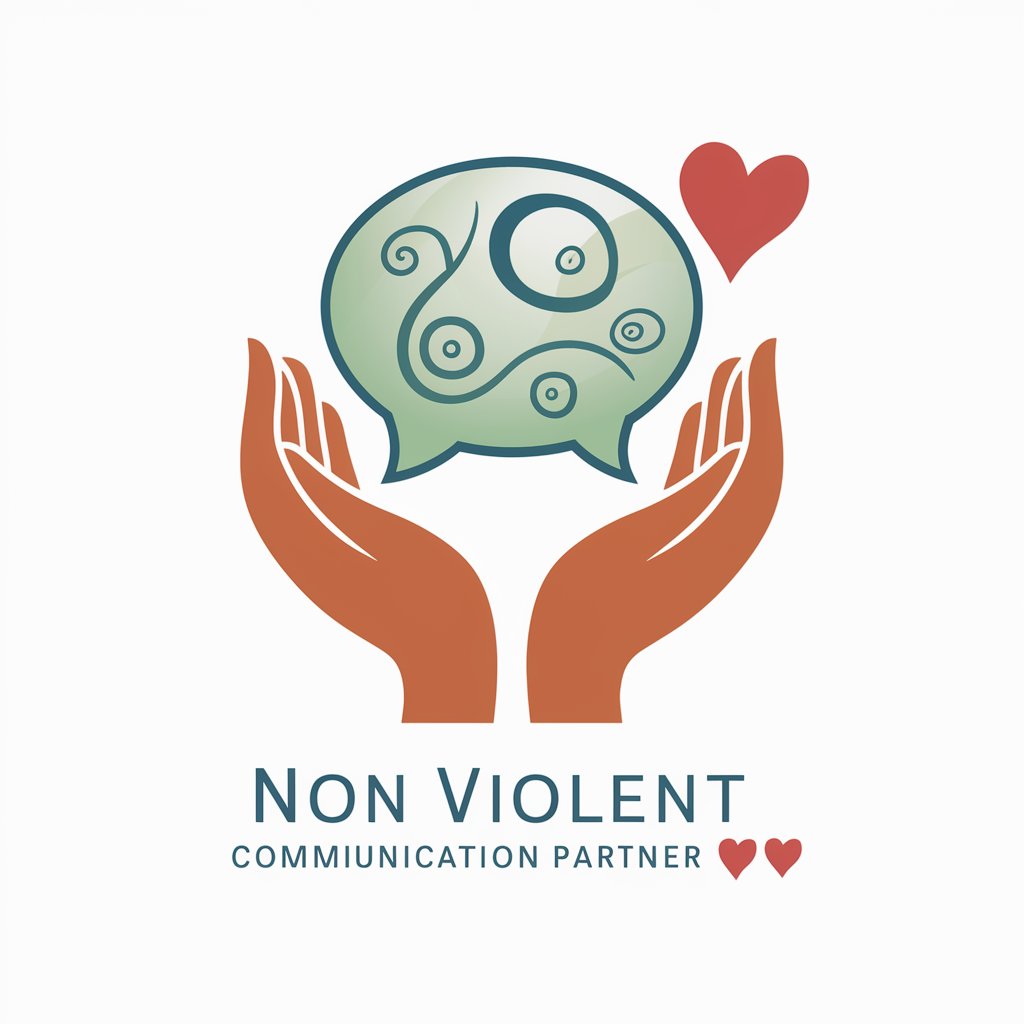
Aide Femmes Violentées
Empowering women through AI-driven support and resources.

Compassionate Communicator
Enhance Your Conversations with AI-Powered Empathy
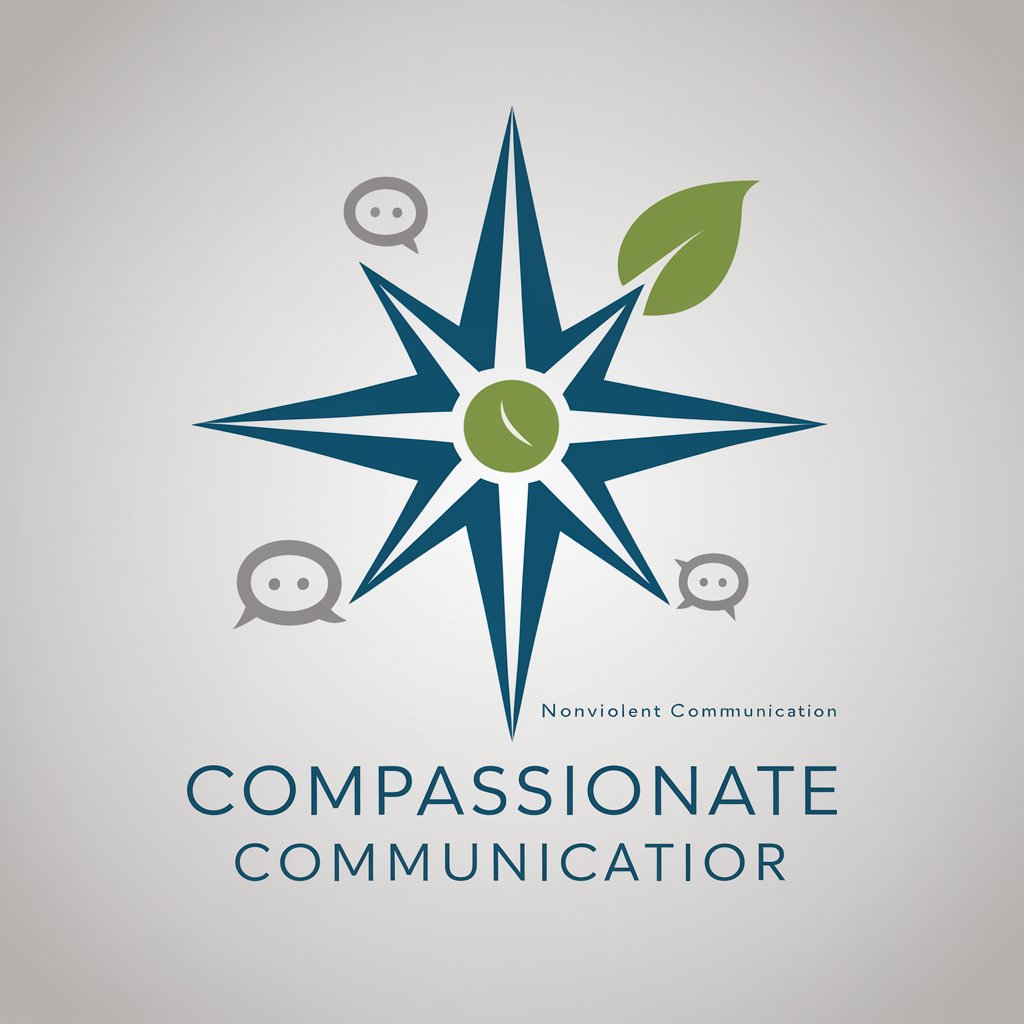
ECOMOVE - Experto en movilidad urbana
Powering Sustainable Urban Mobility with AI

浅草のおばちゃん
Explore Asakusa with Local AI Guidance

Power Point Creator Assistant
Transform ideas into impactful presentations with AI.

Rem
Empowering Conversations with AI

Peacemaker (NVC)
Empower conversations with AI-driven empathy
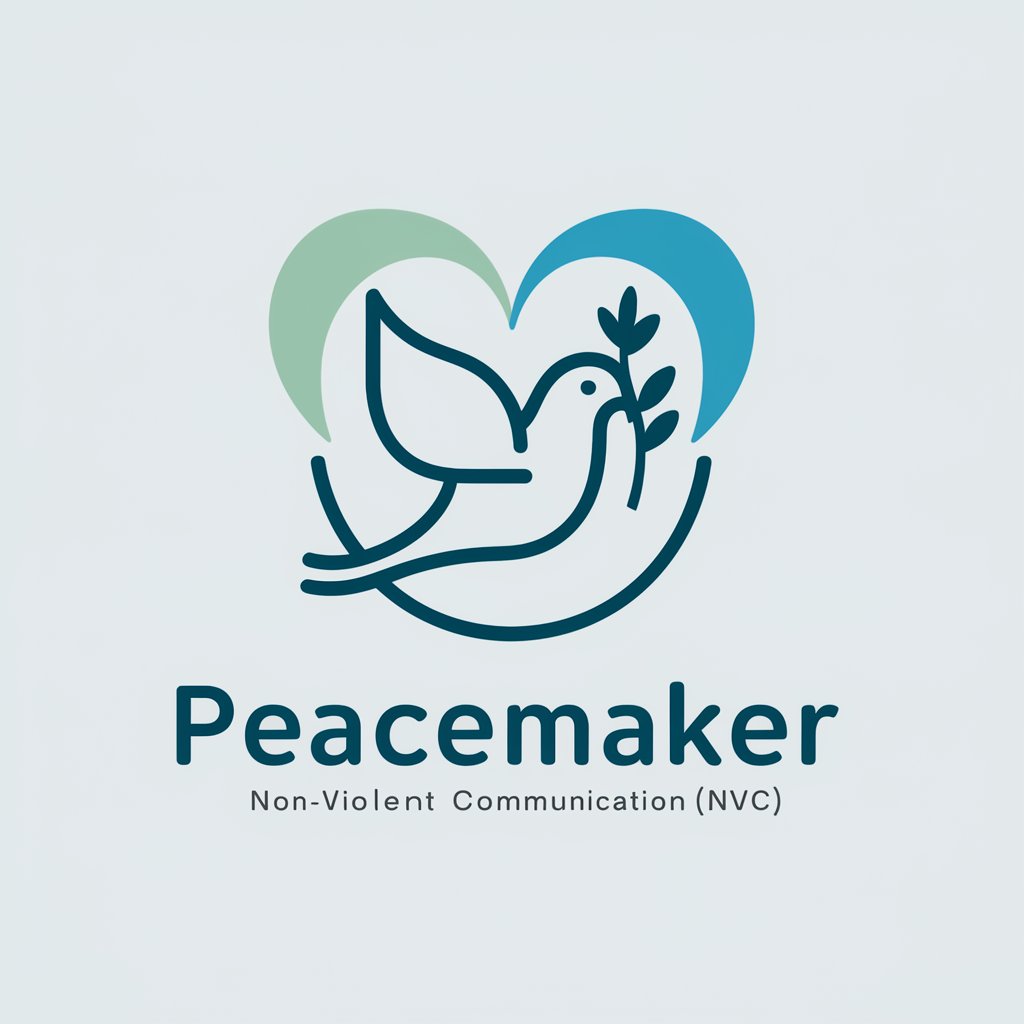
Non-violent communication translator
Empower your words with empathy and clarity.
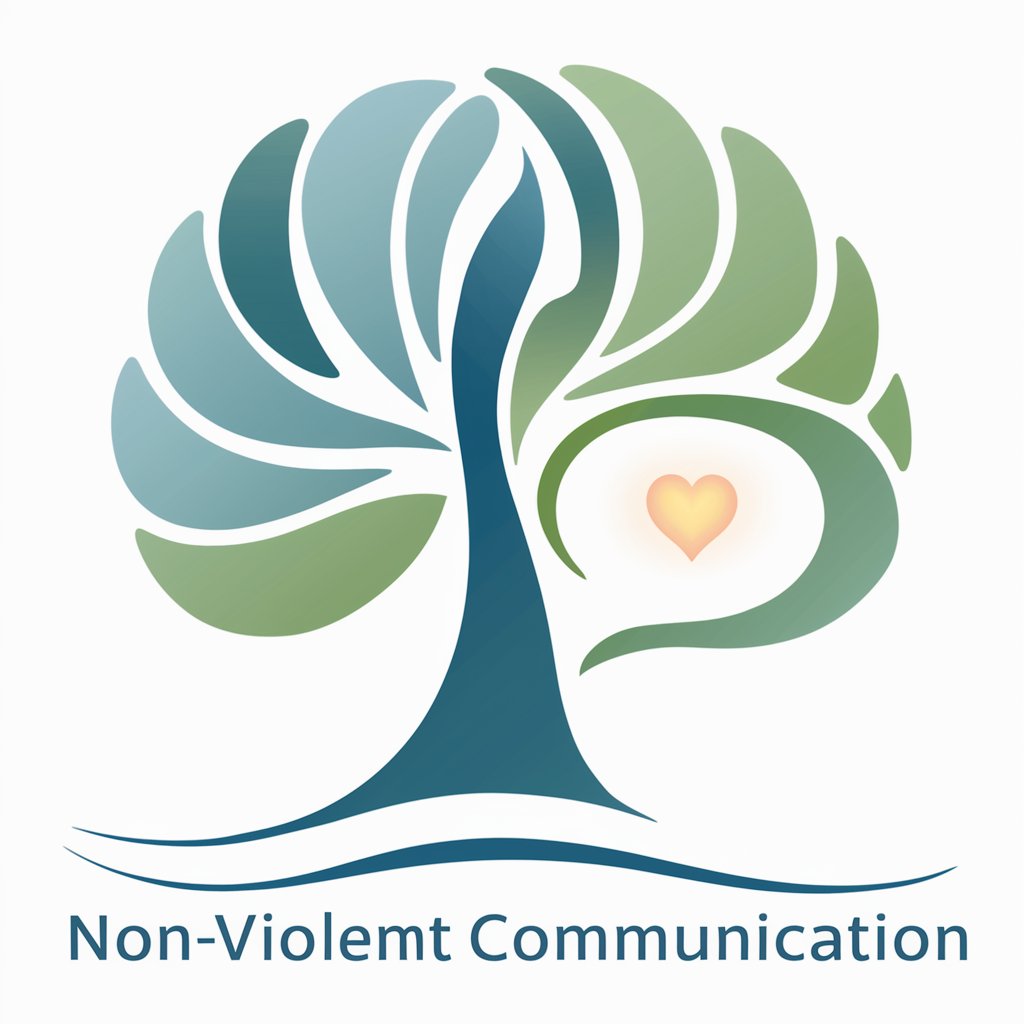
VIOLET ArtistoBot
Empowering creativity with AI-powered abstract art.

Violet: Communications and Letter Writer
Crafting Personalized Letters with AI

VIOLET
Streamlining Legal Work with AI

Q&A About Non-violent Communication Coach
What is Non-violent Communication Coach?
Non-violent Communication Coach is an AI-powered tool designed to help individuals learn and apply the principles of Non-violent Communication (NVC) to improve their interpersonal communications and foster empathy and understanding.
How can Non-violent Communication Coach improve my relationships?
By guiding you through the process of recognizing and expressing your own needs, and empathetically listening to others, the coach can help you build stronger, more understanding relationships with those around you.
What are the core components of NVC that the coach focuses on?
The coach focuses on the four core components of NVC: Observations, Feelings, Needs, and Requests. It helps users differentiate between each and apply them effectively in communication.
Can Non-violent Communication Coach assist in conflict resolution?
Yes, by employing NVC principles to identify the underlying needs of all parties in a conflict and encouraging empathy and honest expression, the coach can facilitate a path towards resolution.
How does the Non-violent Communication Coach incorporate self-empathy?
The coach encourages users to apply NVC principles internally, fostering self-awareness and self-empathy. This includes identifying one's own feelings and needs, thereby improving self-understanding and emotional well-being.

